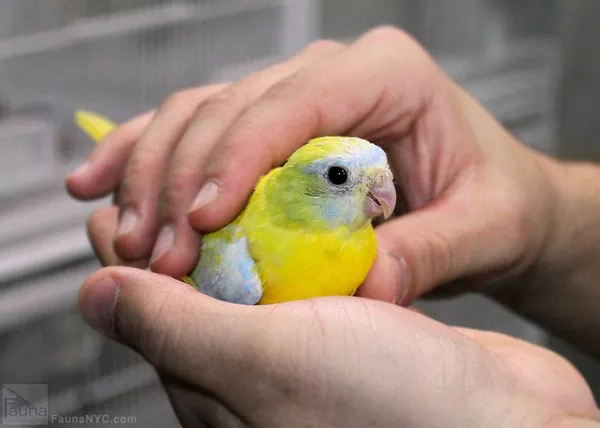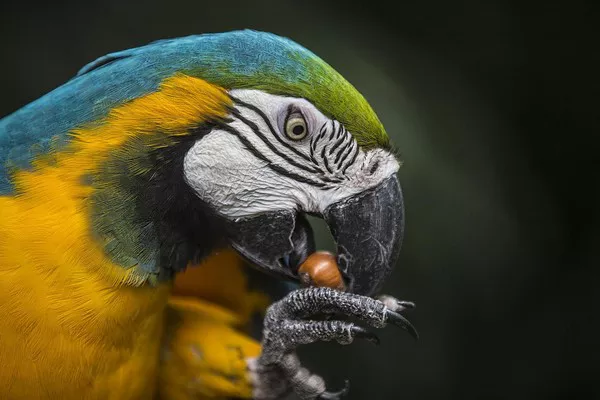Sun Conures, known for their vibrant plumage and engaging personalities, are among the most sought-after parrots for bird enthusiasts. Native to South America, these birds are cherished for their striking appearance and affectionate nature. However, before bringing a Sun Conure into your home, it’s essential to understand the costs involved, both in terms of the initial purchase price and the long-term commitment required. This article will explore the various factors that influence the cost of a Sun Conure, while also providing insights into their species characteristics and living habits.
Understanding the Sun Conure: Species Characteristics and Living Habits
Sun Conures, scientifically known as Aratinga solstitialis, are medium-sized parrots that originate from the northeastern regions of South America, particularly in countries like Brazil, Guyana, and Venezuela. These birds inhabit tropical and subtropical forests, where they thrive in large flocks and enjoy a social, interactive lifestyle.
Physical Characteristics
One of the most distinctive features of Sun Conures is their bright, colorful plumage. As juveniles, Sun Conures display a more muted green color, which gradually transitions into a vibrant blend of yellow, orange, red, and green as they mature. Their radiant colors are a major reason for their popularity as pets.
Sun Conures typically grow to about 12 inches in length and weigh between 3 to 4.5 ounces. They have strong, curved beaks that are well-suited for cracking seeds and nuts, along with zygodactyl feet—meaning they have two toes facing forward and two facing backward—allowing them to grasp objects and climb with ease.
Behavioral Traits
Sun Conures are known for their playful and affectionate nature. They are highly social birds that form strong bonds with their owners and thrive on interaction. These birds are also known for their vocalizations, which can range from melodic chirps to loud calls. While their loudness might be a consideration for potential owners, it’s also a reflection of their vibrant and communicative personalities.
In the wild, Sun Conures live in flocks, which makes them naturally inclined towards social behavior. As pets, they require significant mental stimulation and social interaction to stay happy and healthy. Boredom or loneliness can lead to destructive behaviors, such as feather plucking or excessive screaming.
Diet and Feeding Habits
In their natural habitat, Sun Conures primarily feed on fruits, seeds, nuts, and occasionally insects. In captivity, a balanced diet for a Sun Conure should include high-quality commercial pellets formulated for parrots, along with fresh fruits, vegetables, and occasional treats like nuts and seeds. It’s important to provide a varied diet to ensure they receive all the necessary nutrients for optimal health.
Fresh water should be available at all times, and owners should be mindful of avoiding foods that are toxic to birds, such as avocado, chocolate, caffeine, and alcohol.
Factors Influencing the Cost of a Sun Conure
The cost of purchasing a Sun Conure can vary significantly depending on several factors. Understanding these factors will help you make an informed decision and prepare for the financial commitment involved in owning one of these beautiful birds.
Initial Purchase Price
The initial purchase price of a Sun Conure can range from $400 to $800 or more, depending on various factors such as the bird’s age, coloration, breeder reputation, and location. Let’s explore these factors in more detail:
Age: Younger Sun Conures, especially those that are hand-raised or hand-fed, tend to be more expensive than older birds. Hand-raised chicks are generally more socialized and accustomed to human interaction, making them easier to handle as pets.
Coloration: While most Sun Conures share similar vibrant plumage, some birds may have unique color variations or markings that can affect their price. Birds with particularly vivid or rare color patterns may be priced higher due to their visual appeal.
Breeder Reputation: The reputation and experience of the breeder can significantly impact the cost of a Sun Conure. Reputable breeders who prioritize the health and well-being of their birds, including proper socialization and veterinary care, may charge higher prices. However, purchasing from a reputable breeder also ensures that you are getting a healthy and well-cared-for bird.
Location: The cost of Sun Conures can also vary based on geographical location. In areas where these birds are more popular or scarce, prices may be higher due to supply and demand dynamics.
Ongoing Care and Maintenance Costs
Owning a Sun Conure is not just about the initial purchase price; it also involves ongoing costs related to their care and maintenance. These costs can add up over time and should be considered when budgeting for a Sun Conure.
Housing: Sun Conures require a spacious cage that allows them to move around comfortably and engage in natural behaviors like climbing and playing. A suitable cage can range from $100 to $500, depending on the size, material, and design. It’s important to choose a cage with appropriate bar spacing (typically ½ to ¾ inch) to prevent the bird from escaping or getting stuck.
Diet: A balanced diet is crucial for the health of your Sun Conure. High-quality parrot pellets, fresh fruits, and vegetables should be part of their daily diet. The cost of food can vary, but on average, you can expect to spend $20 to $50 per month on a well-rounded diet.
Toys and Enrichment: Sun Conures are intelligent and active birds that require mental stimulation to prevent boredom. Providing a variety of toys, such as chewable items, puzzles, and foraging toys, is essential for their well-being. The cost of toys can range from $10 to $50 per month, depending on the variety and frequency of replacement.
Veterinary Care: Regular veterinary check-ups are important to monitor your Sun Conure’s health and catch any potential issues early. Annual vet visits can cost between $50 and $150, depending on your location and the services provided. Additionally, unexpected health issues or emergencies may arise, so it’s wise to set aside funds for potential veterinary expenses.
Grooming: Sun Conures require regular grooming, including nail trimming and beak maintenance. While some owners choose to do this themselves, others may prefer to have a professional handle grooming. Grooming services can cost between $20 and $50 per session.
Insurance: Some owners opt to purchase pet insurance to help cover the costs of veterinary care. The cost of insurance varies based on the coverage level, but it typically ranges from $10 to $30 per month.
Is a Sun Conure the Right Bird for You?
Before deciding to purchase a Sun Conure, it’s important to consider whether this species is the right fit for your lifestyle and household. While Sun Conures are known for their affectionate and engaging personalities, they also require a significant time commitment and a stimulating environment.
See Also: 5 Best Parrot to Own in 2024
Time and Attention
Sun Conures are social birds that thrive on interaction with their owners. They require several hours of socialization and mental stimulation each day to stay happy and healthy. If you have a busy lifestyle or are frequently away from home, a Sun Conure may not be the best choice for you. These birds can become lonely and develop behavioral issues if they do not receive enough attention.
Noise Level
Sun Conures are known for their vocalizations, which can be loud and frequent. Their calls can be piercing and may not be suitable for apartment living or households with noise sensitivities. Potential owners should be prepared for the noise level and consider whether it will be manageable in their living environment.
Longevity
Sun Conures have a relatively long lifespan, often living 20 to 30 years or more with proper care. Owning a Sun Conure is a long-term commitment, and potential owners should be prepared for the responsibility of caring for the bird throughout its lifetime.
Compatibility with Other Pets
If you have other pets, it’s important to consider how they will interact with a Sun Conure. While Sun Conures can coexist with other birds, they may not get along with all species, and interactions should be closely supervised. Additionally, if you have cats or dogs, you will need to ensure that your Sun Conure’s cage is secure and that the bird is safe from potential predators.
Conclusion
The cost of owning a Sun Conure goes beyond the initial purchase price. These colorful and affectionate birds require a significant investment in terms of time, attention, and financial resources. By understanding the factors that influence the cost of a Sun Conure and the ongoing care requirements, you can make an informed decision about whether this species is the right fit for you.
Sun Conures are a rewarding and delightful companion for those who are willing to meet their needs and provide a stimulating and loving environment. If you are prepared for the commitment, a Sun Conure can bring joy, color, and personality into your life for many years to come.
Related Topics:























